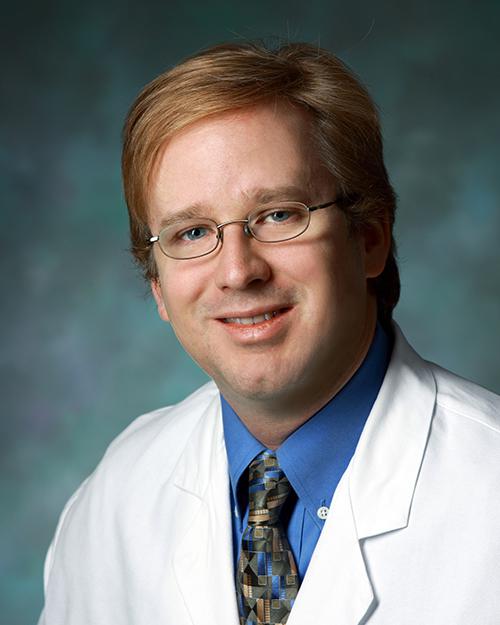Research Lab Results
-
Foster Lab
The Foster Lab uses the tools of protein biochemistry and proteomics to tackle fundamental problems in the fields of cardiac preconditioning and heart failure. Protein networks are perturbed in heart disease in a manner that correlates only weakly with changes in mRNA transcripts. Moreover, proteomic techniques afford the systematic assessment of post-translational modifications that regulate the activity of proteins responsible for every aspect of heart function from electrical excitation to contraction and metabolism. Understanding the status of protein networks in the diseased state is, therefore, key to discovering new therapies. D. Brian Foster, Ph.D., is an assistant professor of medicine in the division of cardiology, and serves as Director of the Laboratory of Cardiovascular Biochemistry at the Johns Hopkins University School of Medicine. -
George Rose Lab
The George Rose Lab investigates protein folding, the spontaneous disorder transition that takes place under physiological conditions. The protein polymer is flexible in its unfolded state but takes on a unique native, three-dimensional form when folded. We propose that the folded state is selected from a set number of structural possibilities, each corresponding to either a distinct hydrogen-bonded arrangement of ??helices or a strand of ??sheet.
-
Caren L. Freel Meyers Laboratory
The long-term goal of the Caren L. Freel Meyers Laboratory is to develop novel approaches to kill human pathogens, including bacterial pathogens and malaria parasites, with the ultimate objective of developing potential therapeutic agents. Toward this goal, we are pursuing studies of bacterial isoprenoid biosynthetic enzymes comprising the methylerythritol phosphate (MEP) pathway essential in many human pathogens. Studies focus on understanding mechanism and regulation in the pathway toward the development of selective inhibitors of isoprenoid biosynthesis. Our strategies for creating new anti-infective agents involve interdisciplinary research in the continuum of organic, biological and medicinal chemistry. Molecular biology, protein expression and biochemistry, and synthetic chemistry are key tools for our research.
-
Susan Michaelis Lab
The Michaelis Laboratory's research goal is to dissect fundamental cellular processes relevant to human health and disease, using yeast and mammalian cell biology, biochemistry and high-throughput genomic approaches. Our team studies the cell biology of lamin A and its role in the premature aging disease Hutchinson-Gilford progeria syndrome (HGPS). Other research focuses on the core cellular machinery involved in recognition of misfolded proteins. Understanding cellular protein quality control machinery will ultimately help researchers devise treatments for protein misfolding diseases in which degradation is too efficient or not enough.

